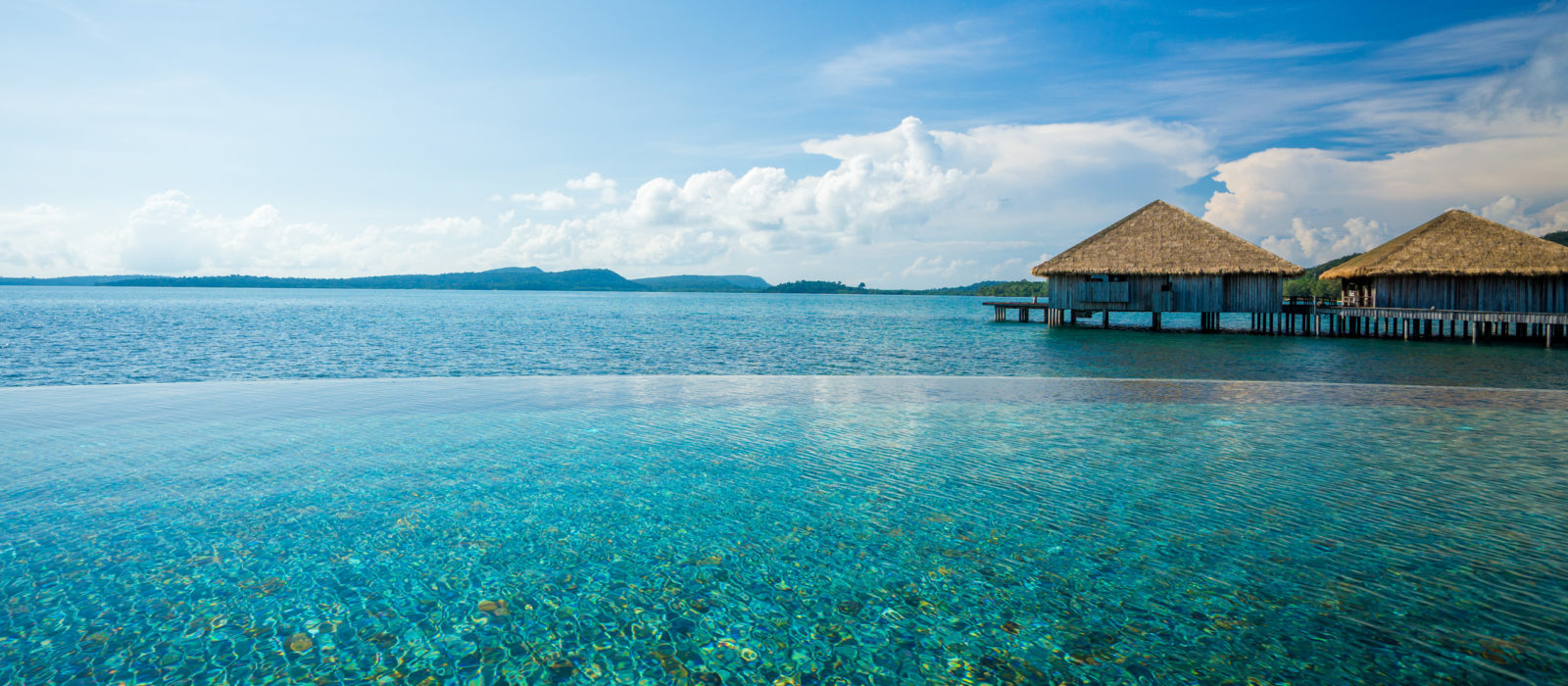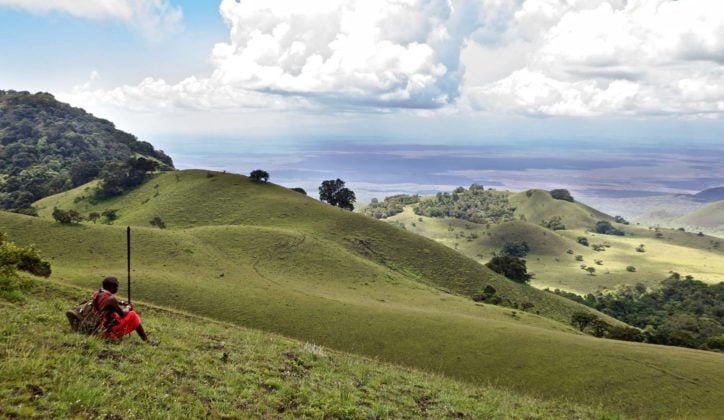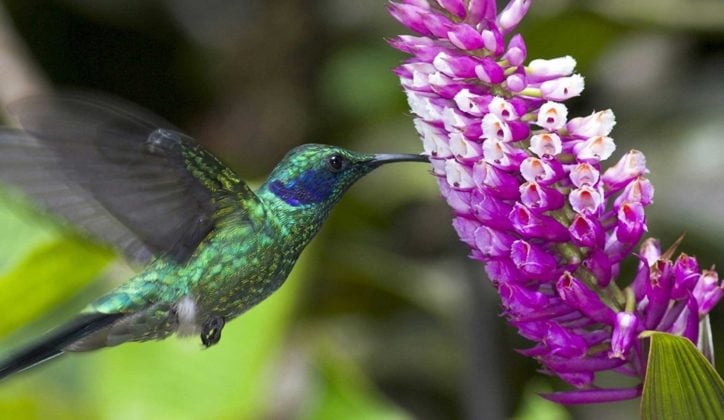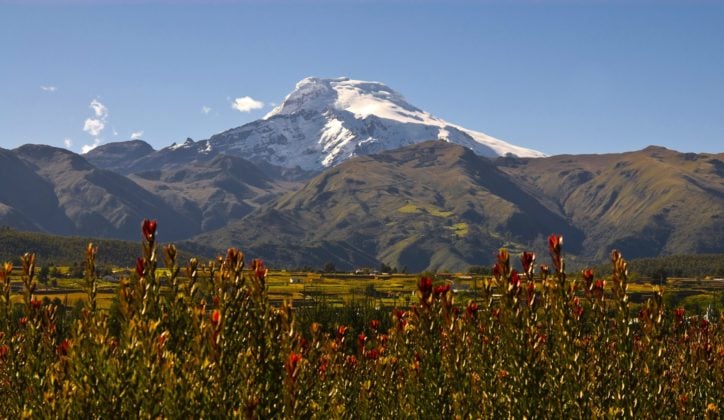Published on: April 24th, 2019
Last modified: November 13th, 2019
At Jacada, we’re trying to improve and reduce our own carbon footprint and take care of our planet as much as possible. In our efforts to operate sustainably, we champion working with hotels and lodges that are environmentally aware.
One thing that is undoubtedly having a negative impact on our oceans and their inhabitants is the excessive use of single-use plastic, which has been documented in many studies. It’s estimated that a whopping 8 million tonnes of plastic currently ends up in the oceans each year.
Many luxury hotels have great initiatives set up to help reduce plastic waste. To help you be a more considerate traveller, we’ve put together this list of our favourite sustainable luxury hotels that are working to go plastic free.

Song Saa, Cambodia
A stunning private island just a stone’s throw from the Cambodian coast, Song Saa is making waves for their approach to conservation and sustainable luxury. When they stumbled upon this now pristine island, owners Melita and Rory worked on clearing the area from debris and harmful plastics, eventually revealing its beauty underneath. Today, Song Saa is well ahead of the game in terms of effectively utilising and eliminating plastic.
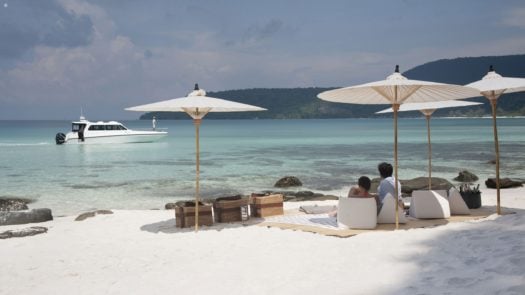
Before the eco-conscious owners set about building a luxurious eco-haven, they chartered boats to collect mountains of discarded rubbish on this once forgotten island. Sustainability is a key feature of the property, with the beautifully decorated suites made from reclaimed wood and other recycled materials sourced from throughout Cambodia. Song Saa is a completely plastic-free property, as all non-recyclable materials – including plastic – are banned from the island.
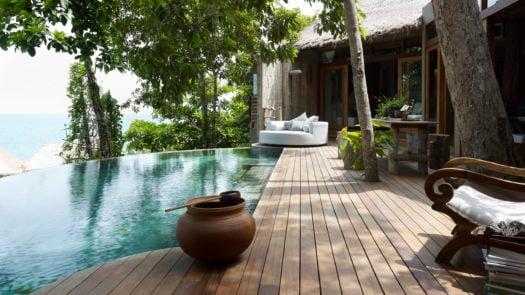

Soneva Resorts, Maldives and Thailand
An innovator in the plastic-free movement, all Soneva resorts operate without plastics. Soneva banned the use of plastic water bottles way back in 2008, and encourages guests to take their plastic waste home with them. They are also one of the founders of Whole World Water. This admirable initiative encourages businesses across the travel and hospitality industry to replace single-use plastic water bottles with reusable glass ones. As a result, over 1.2 million plastic bottles have been replaced with reusable ones.
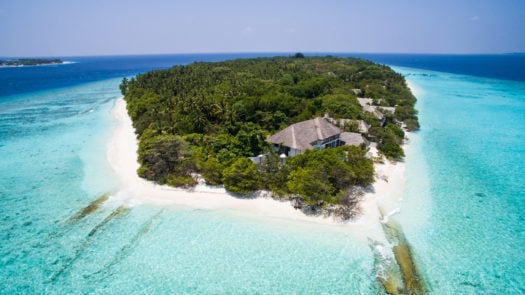
At the idyllic Soneva Fushi in the Maldives, the resort goes one step further by encouraging guests to take part in activities aimed at reducing waste. Here, guests can give back to the local community by turning waste plastic into souvenirs or toys for local children. You can learn more about Soneva Fushi’s initiatives here.
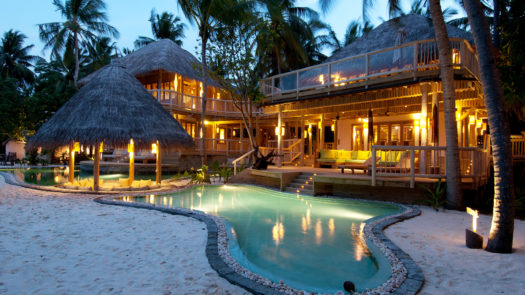

Six Senses, worldwide
The innovative Six Senses hotel group has developed an initiative called Earth Lab, which helps to educate guests and raise awareness around their sustainability efforts. When it comes to plastic, the Six Senses have also adopted a Zero Waste philosophy. All used materials are recycled and given a new purpose, ensuring there’s no waste. Earth Lab assists the Six Senses with this philosophy, by upcycling materials into new products.

Plastic water bottles have been completely eliminated, as water is now bottled on site. In 2017, the Six Senses managed to avoid the use of over 60,000 water bottles through this approach alone. Plastic-free living is at the forefront throughout Six Senses properties, with alternatives to plastic straws – such as paper, bamboo and lemongrass – offered at each resort.
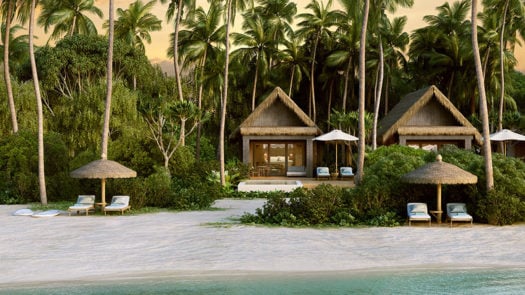

Best of the rest
Jack’s Camp, Botswana
In Botswana’s endless Makgadikgadi Pans, pollution is noticeable so it’s imperative to keep the camps as clean as possible. The luxurious Jack’s Camp is as plastic free as possible. On game drives, the lodge provides glass bottles instead of water bottles, and there are no traces of straws anywhere.
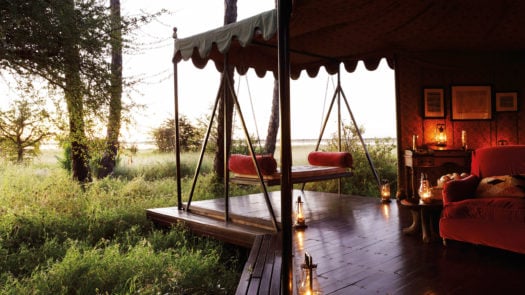
Grootbos Private Reserve, South Africa
This stunning private reserve in South Africa’s Western Cape does not shy away from sustainability and conservation challenges. This forward thinking lodge has completely eliminated plastics; for example they provide guests with metal drinking bottles. In order to further reduce waste, the bottles are sterilised and re-used, rather than given away as gifts.

Alila Hotels, worldwide
Alila get a gold star from us for their initiatives! At Alila Ubud in Bali, a water purification system is one of the property’s most admirable features. Designed by Eco Pure Waters, this system allows the hotel to produce their own bottled water. Once purified, the water is collected and decanted into glass bottles, which are washed in a biodegradable chemical and then reused. Eco all the way!
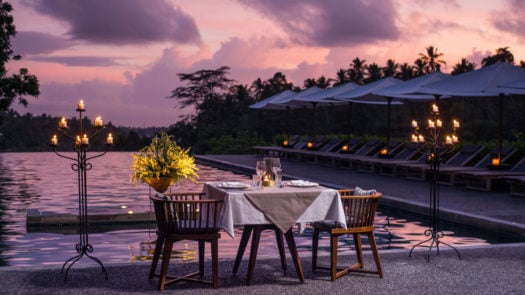
Whilst eliminating single use plastics is a great large-scale way of tackling issues such as climate change and ocean pollution, there is also a myriad of different ways you can be a more sustainable traveller. Read on for our tips on small changes you can make to become a more eco-friendly traveller.
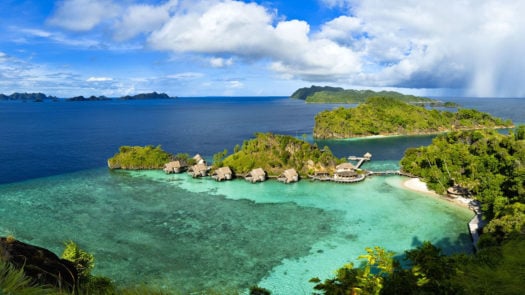

How to be an eco-friendly traveller
1) Interact with animals responsibly
With so many national parks and safari reserves throughout the world, it’s no surprise that animals feature heavily in a lot of vacations. We’re often asked about our opinion on animal interactions such as walking with cheetahs, riding elephants or petting lion cubs. While we understand that wildlife lovers may be keen to get up close to animals, we think it’s important to make the distinction between established sanctuaries and other less ethical experiences (which unfortunately make up the majority of animal interactions).

At Jacada, we don’t support organisations that breed or capture animals in order to solely entertain the public and we disagree with riding elephants. We do believe, though, that there are a number of respectable sanctuaries where animal interactions are used for good. In Africa, ethical sanctuaries we support include South Africa’s Hoedspruit Endangered Species Centre (HESC), Namibia’s Africat Foundation and the David Sheldrick Wildlife Trust (DSWT) in Kenya. In Asia, one of our favourites for ethical elephant interaction is Chiang Rai’s Elephant Valley. All it takes is a little pre-trip research to make sure your animal interactions are as ethical as possible.

2) Put locals first
Voluntourism is a growing trend, and it’s becoming increasingly common for local communities to be at the heart of tourist experiences. There are many experiences that do more harm than good when it comes to local communities though, so it’s worth seeking out experiences that put the local community first. For vacations to truly give back to local communities, it’s important to make sure the experiences on offer are directly benefiting the people who call the country you’re visiting home.

At Jacada, we actively seek out experiences that ensure our travellers have a positive impact on the people and communities you visit. You can find out how to get up close to the locals on one of our trips with our guide to people-focused positive impact travel. Wherever it is you’re visiting, make sure any community-based tourism you’re participating in actually provides a tangible benefit to the local population.
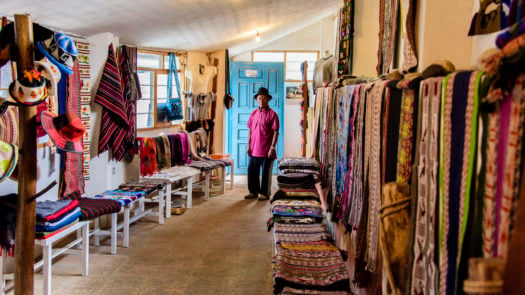
3) Go plastic free
While staying in plastic free hotels is a great way to travel more sustainably, there’s also a number of smaller every day habits that can help you cut down on your use of single-use plastics abroad. Pack a reusable water bottle, take tote bags with you when you shop at local markets and have reusable wooden cutlery on hand – all great ways to cut down on your plastic use and save the environment while you’re at it!
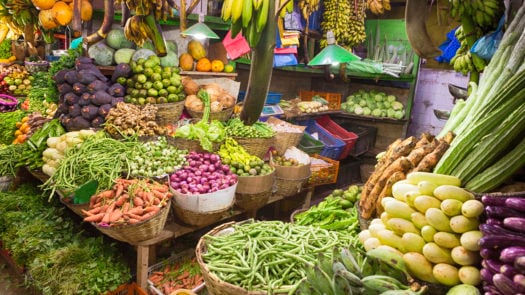
4) Swap planes for trains
It goes without saying that to reach some destinations, a flight is necessary. Once you’re in country though, it pays to consider travelling via modes of transport that are closer to the ground. Aeroplanes across the world generate tonnes of carbon dioxide on a daily basis, so when you’re travelling regionally it’s much more environmentally-friendly to travel by train, bus or car. In addition to the environmental effects, there’s a whole host of benefits to travelling by train – no luggage limit or airport security, and the added bonus of scenic views along the journey.
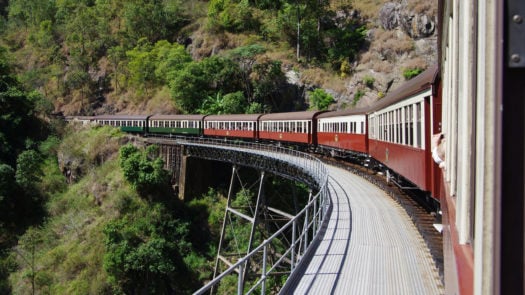
5) Eat local & drink “near beer”
By eating local food and drinking locally produced beer, you’ll be supporting local establishments while doing your bit for the planet. While satisfying your tastebuds, you can take comfort in the fact what you’re consuming is low-mileage and hasn’t been imported. Chances are, you’ll also be supporting local businesses by consuming local produce. You might even discover your new favourite dish or tipple along the way!
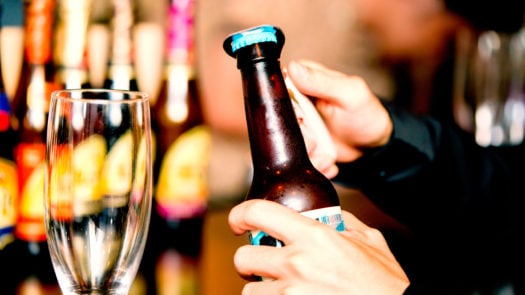
Discover our favourite eco-friendly itineraries
Feeling inspired? Our expert travel designers are always on hand to help you plan your next eco-friendly adventure.
